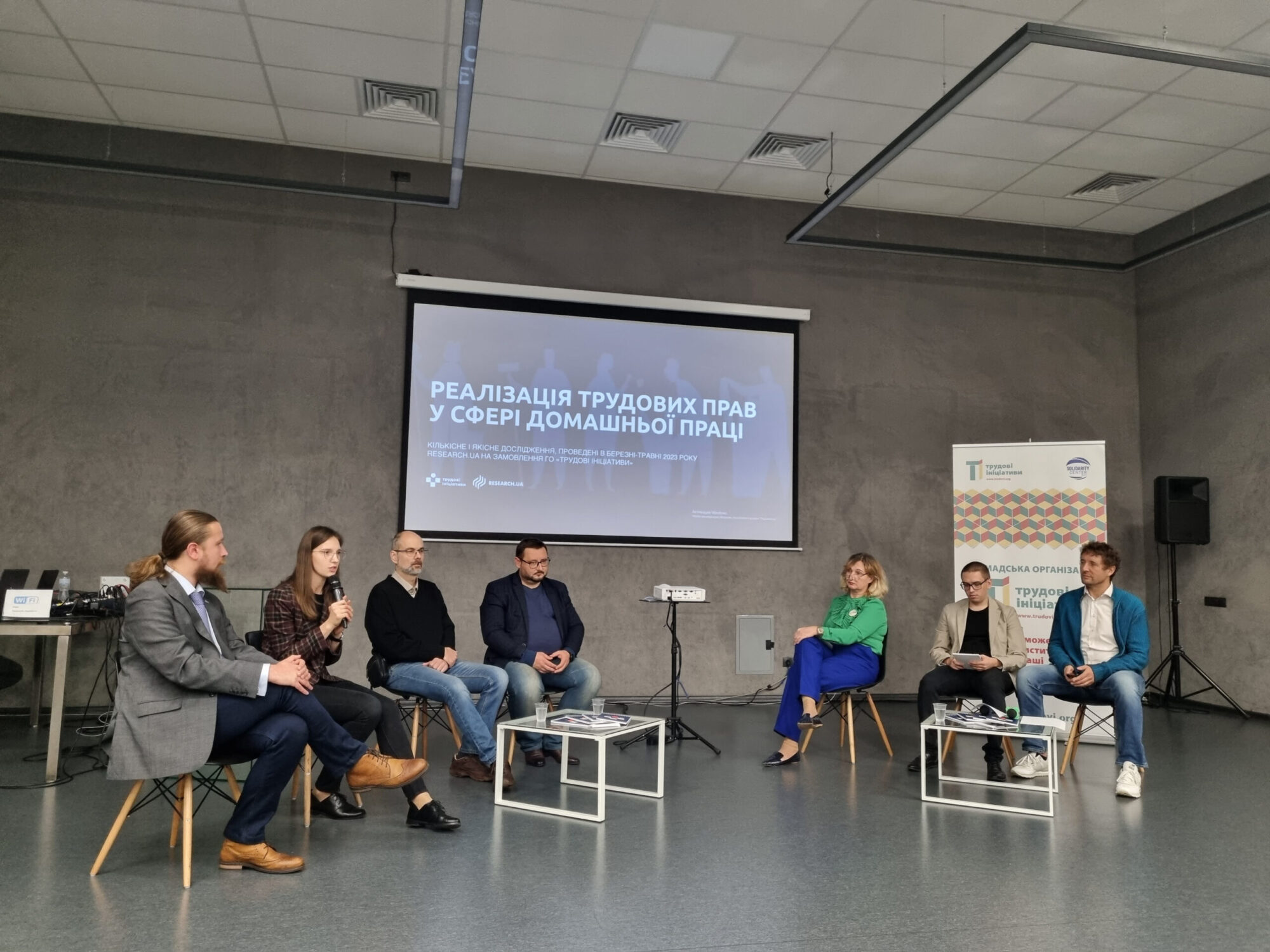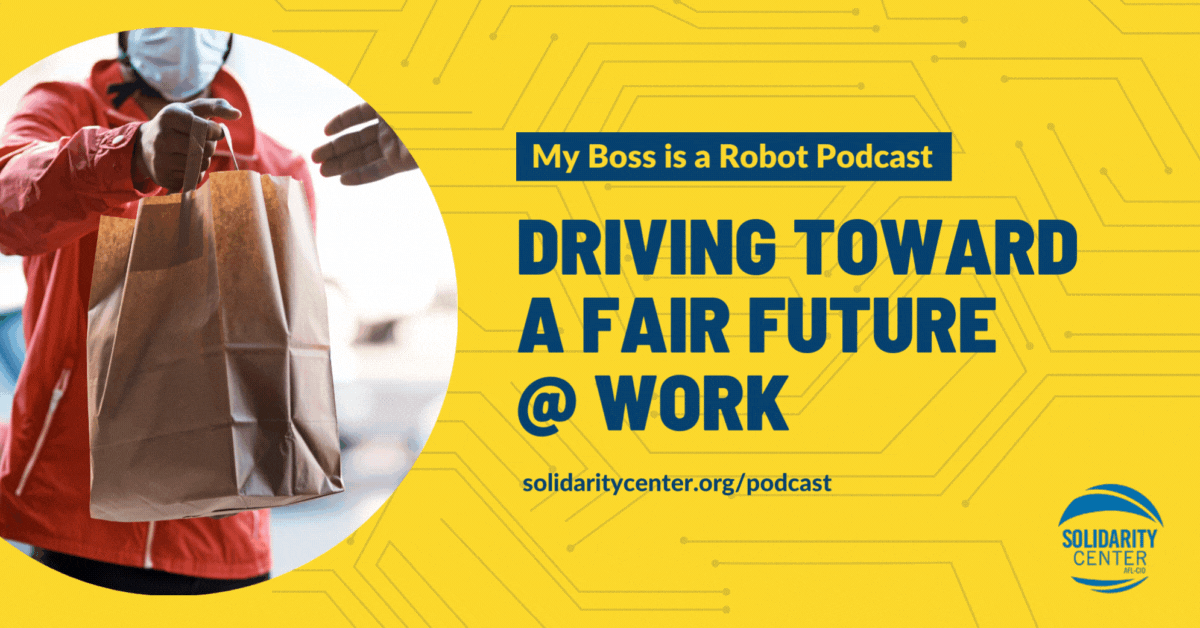In a first for Ukraine, in-home childcare workers including nannies and babysitters organized and then elected domestic worker Tetiana Lauhina to head their new labor organization, Union of Home Staff (UHS). "[My colleagues] are amazingly hard-working and...

The Solidarity Center assists workers in the informal economy, such as market vendors in Zimbabwe, come together to assert their rights and raise living standards. Credit: ZCIEA
Some 2 billion people work in the informal sector as domestic workers, taxi drivers, and street vendors, many of them women workers. Informal economy work now comprises the majority of jobs in many countries and is increasing worldwide. Although informal economy workers can create up to half of a country’s gross national product, most have no access to health care, sick leave or support when they lose their jobs, and they have little power to advocate for living wages and safe and secure work.
The Solidarity Center is part of a broad-based movement in dozens of countries to help workers in the informal economy come together to assert their rights and raise living standards. For instance, three affiliates of the Central Organization of Trade Unions-Kenya (COTU-K), a Solidarity Center partner, signed agreements with informal worker associations to unionize the workers, enabling them to access to the country’s legal protections for formal-sector employees.
Find out more about informal workers gaining power by joining together in unions and worker associations in this Solidarity Center-supported publication, Informal Workers and Collective Action: A Global Perspective.
UKRAINE: DOMESTIC WORKER SURVEY DOCUMENTS PERILS OF INFORMAL STATUS
A new survey—the first in Ukraine to evaluate domestic workers’ working conditions—found that working without contracts and formal recognition has left most survey respondents victim to low pay, wage theft, confusion about employment status, exclusion from the...
Driving Toward a Fair Future @ Work
While the rapid increase in app-based jobs around the world offers millions of workers additional avenues to ear money, it also creates new opportunities for employer exploitation through low wages, lack of health care and an absence of job safety–and that means...
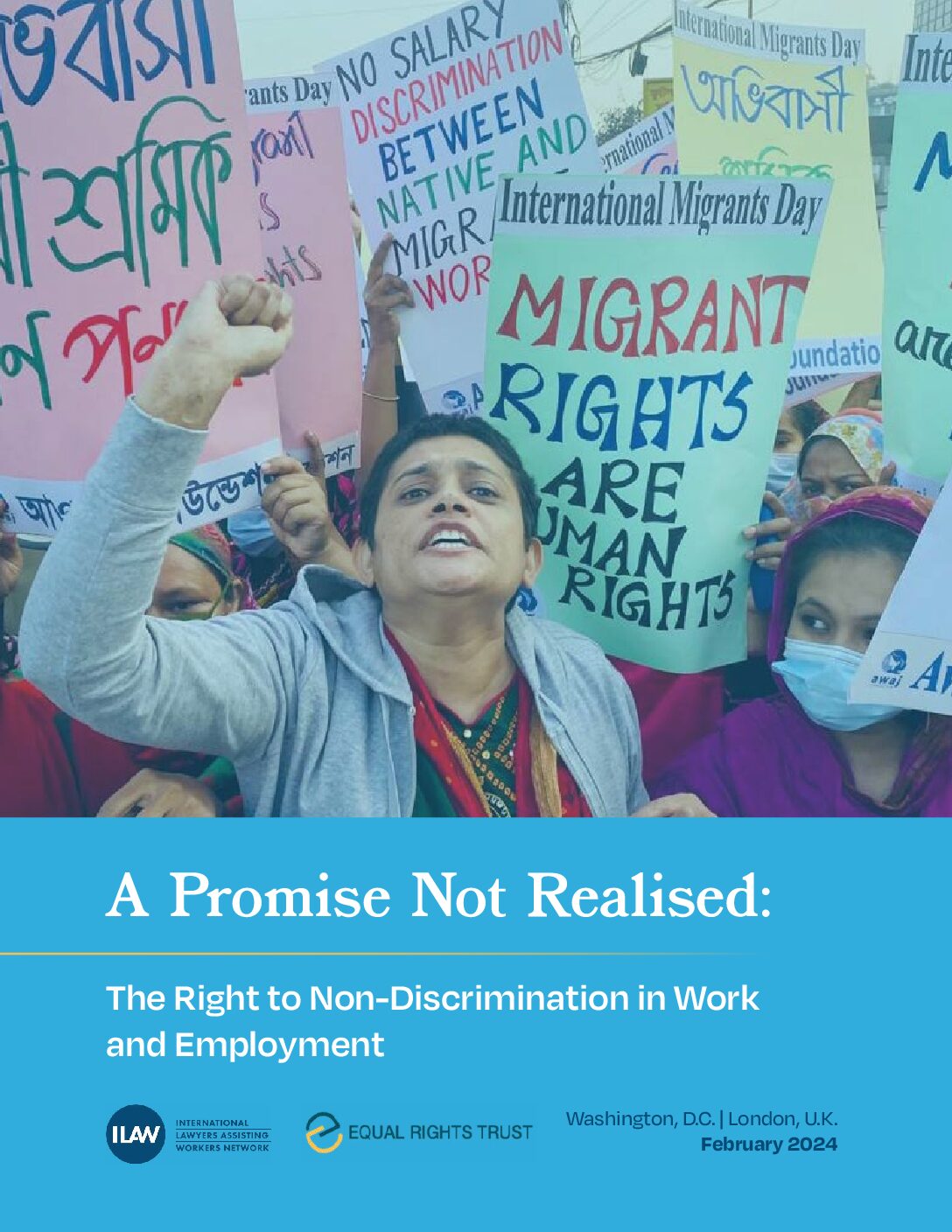
A Promise Not Realised: The Right to Non-Discrimination in Work and Employment
The ILAW Network is pleased to present our new report, A Promised Not Realised: The Right to Non-Discrimination in Work and Employment – a collaboration of the ILAW Network and Equal Rights Trust (ERT). This issue brief focuses on two main questions: (1) why does...
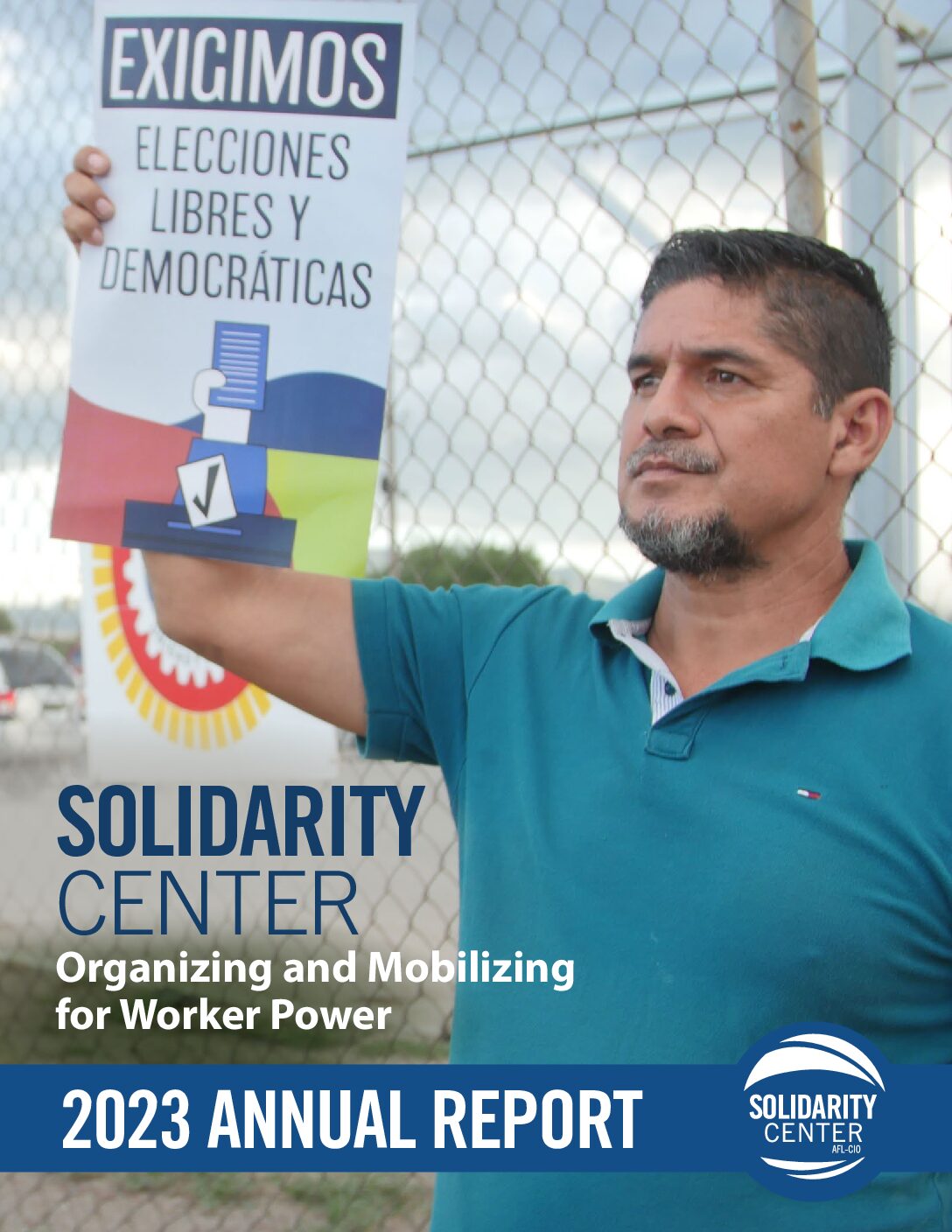
2023 Annual Report
In 2023, the Solidarity Center supported workers as they took on exploitative multinational companies and robot algorithms, demanded their governments tackle social ills and deliver on promises, and fought for justice in environments increasingly dangerous to those...
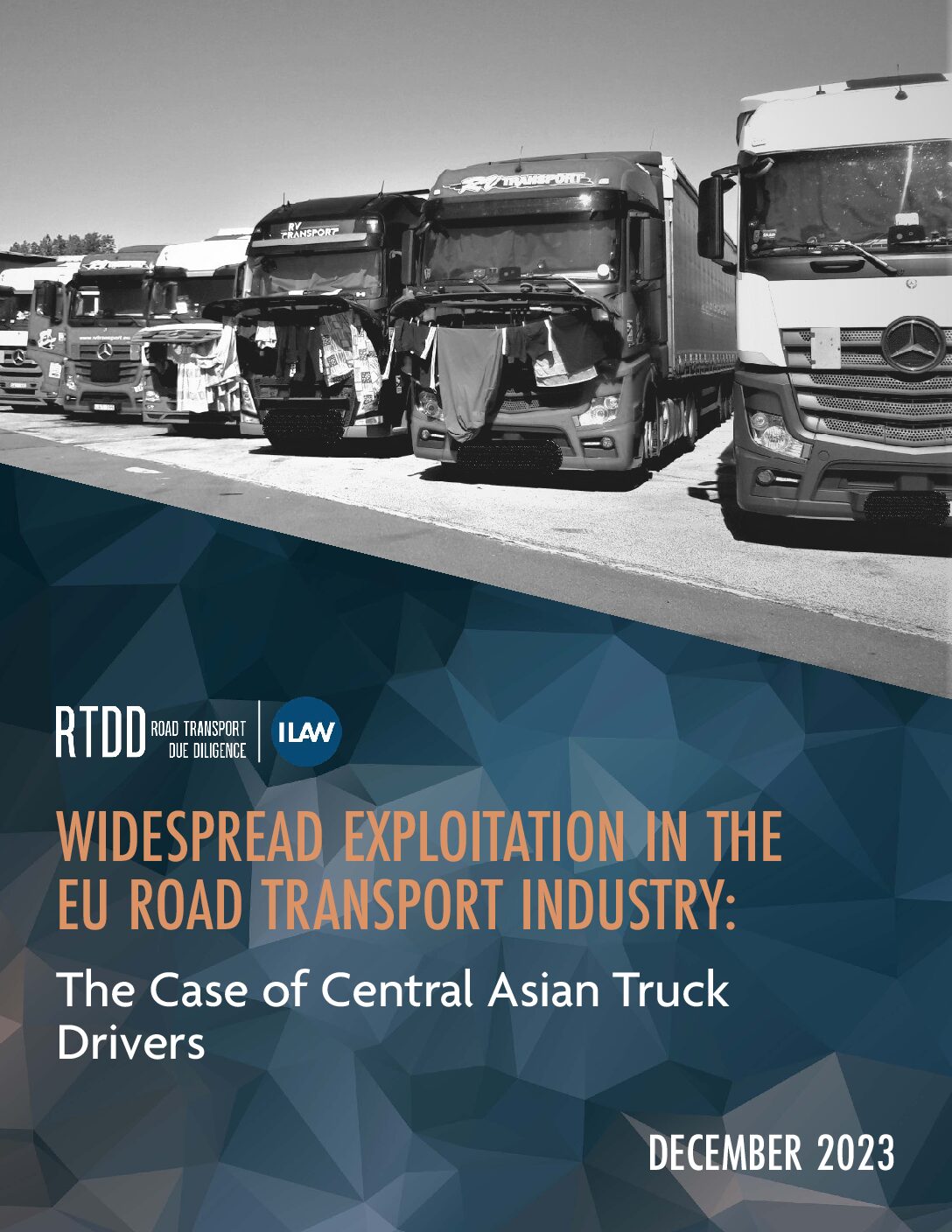
Widespread Exploitation in the EU Road Transport Industry: The Case of Central Asian Truck Drivers
The ILAW Network is pleased to present our new report, Widespread Exploitation in the EU Road Transport Industry: The Case of Central Asian Truck Drivers, written by Imke van Gardingen and Edwin Atema of Road Transport Due Diligence (RTDD). This research was supported...
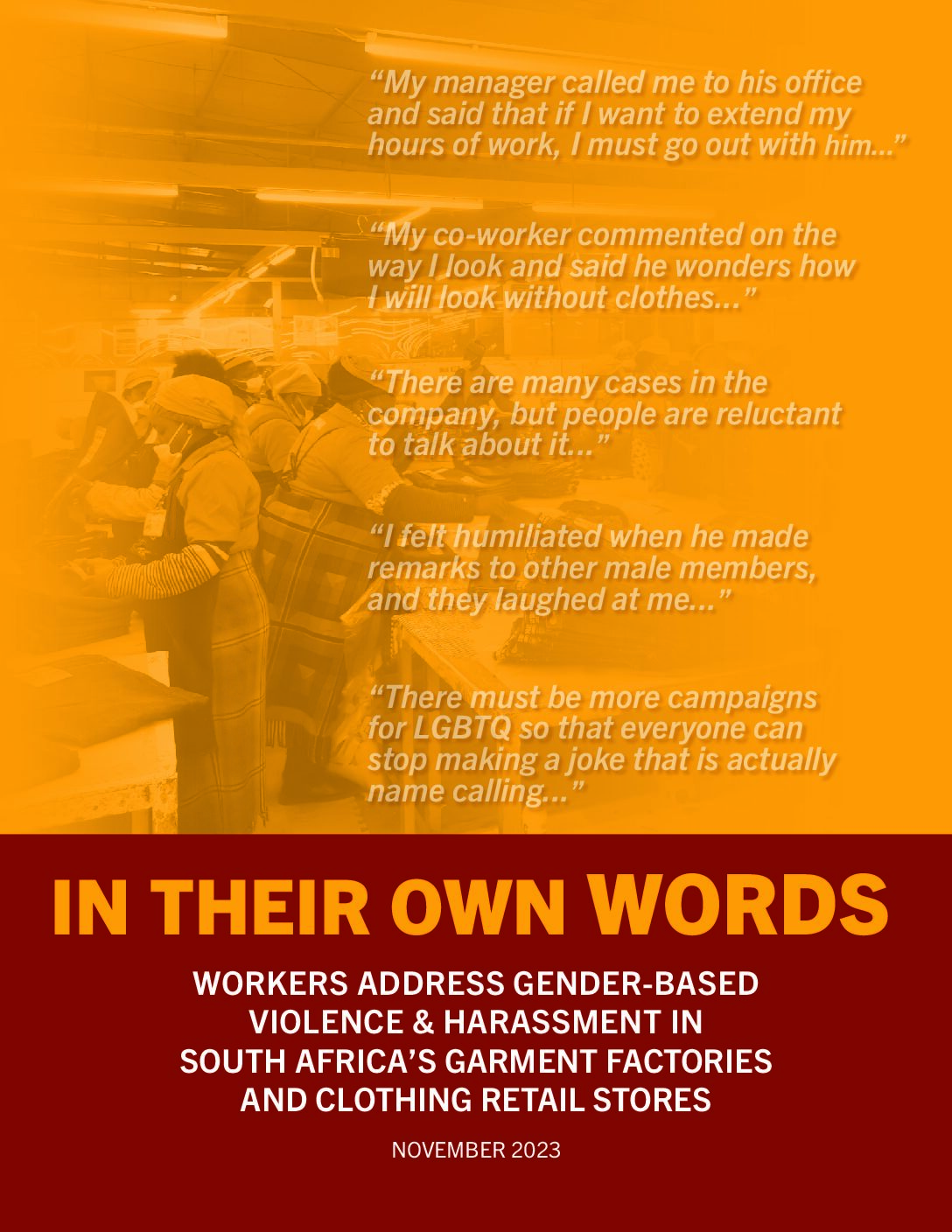
In Their Own Words: Workers Address Gender-Based Violence & Harassment in South Africa’s Garment Factories and Clothing Retail Stores
In South Africa, 98 percent of women garment and retail workers surveyed in 2022 said they had experienced one or more forms of gender-based violence or harassment, including physical abuse, unwanted sexual advances, psychological abuse, bullying and rape. To better...
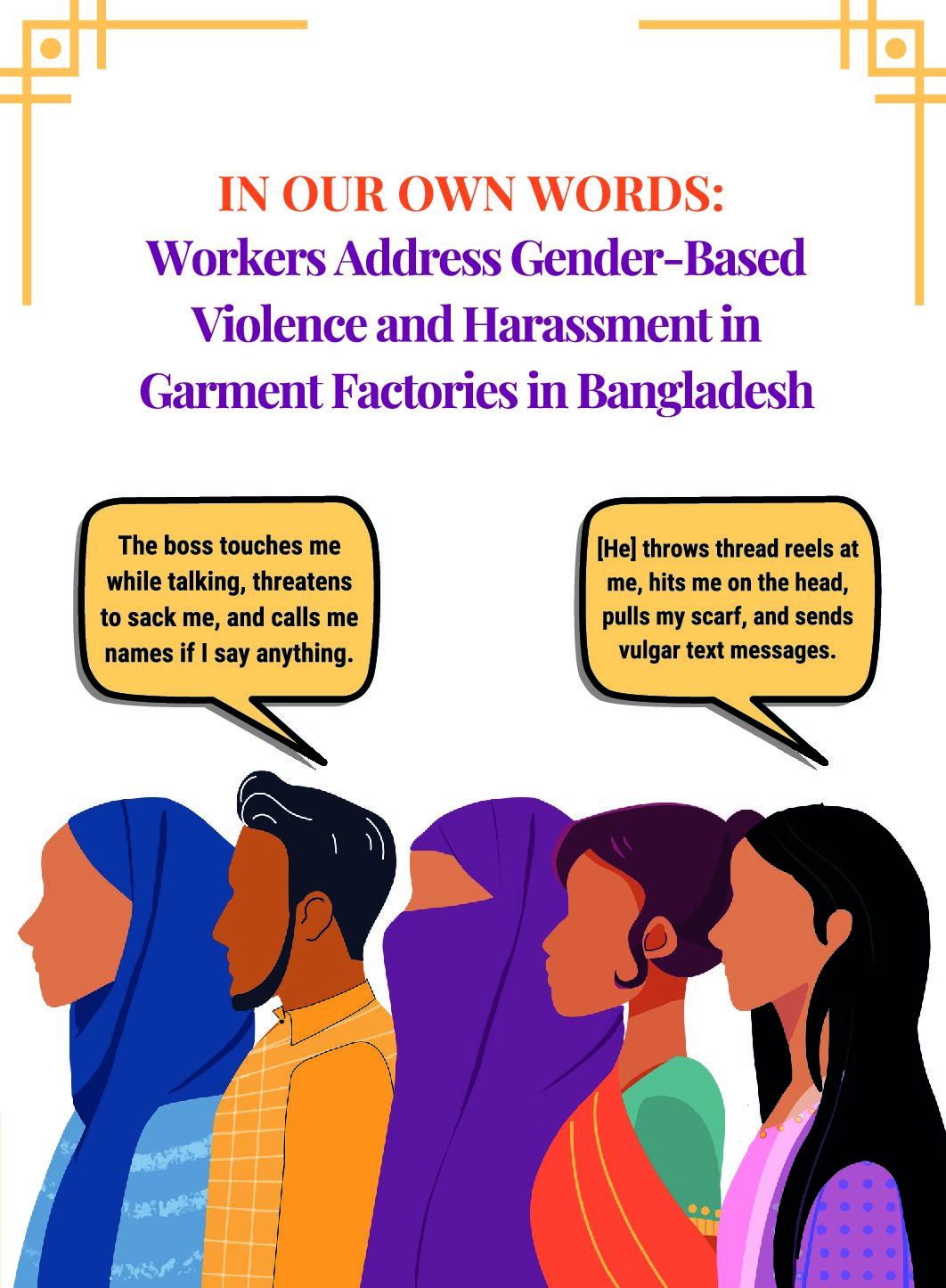
In Our Own Words: Workers Address Gender-Based Violence and Harassment in Garment Factories in Bangladesh
In Bangladesh, 80 percent of women garment workers surveyed in 2019 reported they had experienced or witnessed sexual harassment, molestation or assault, endured extreme verbal abuse or witnessed a factory manager or supervisor abuse and harass other women in the...
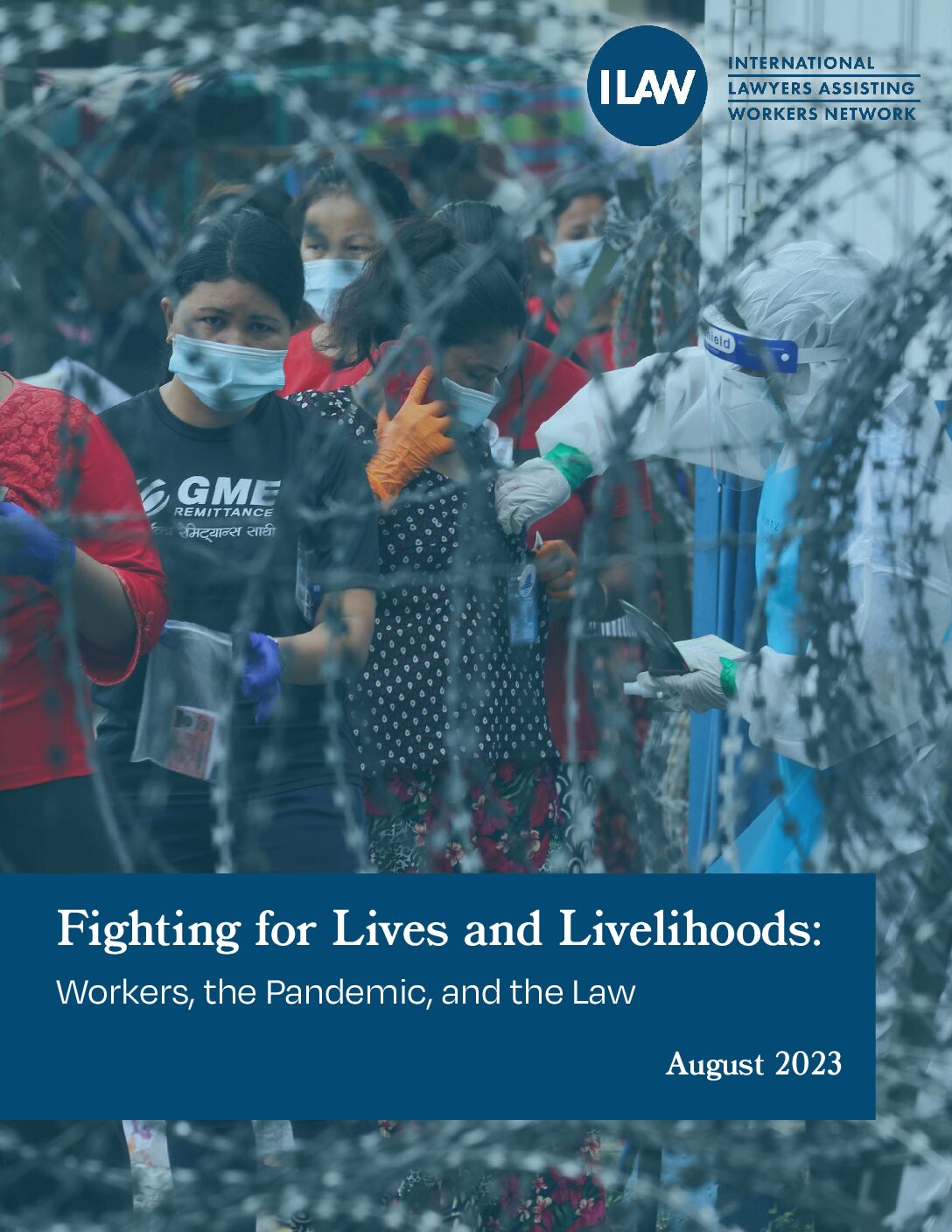
Fighting for Lives and Livelihoods: Workers, the Pandemic and the Law
It has been widely reported that when the COVID-19 pandemic began, governments and employers were ill-informed, ill-prepared and in many cases willing to risk the lives of workers for profits-leading to occupational health and safety failures globally. This issue...


